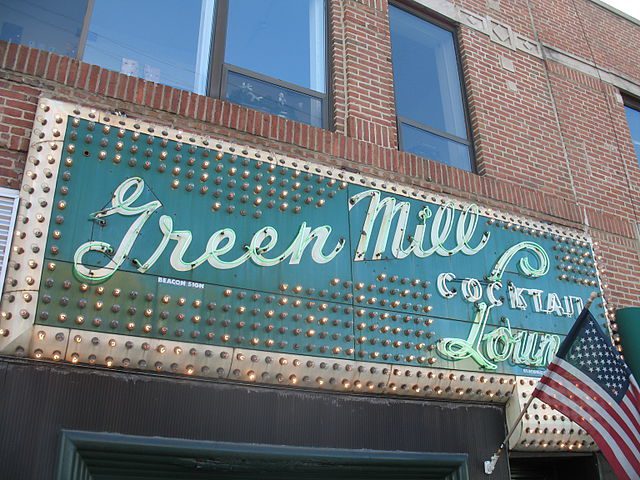When Jazz Moved to Chicago, the Story of Faber and Faber, and Opting Out of the Internet

If there’s one thing I dislike, it’s people doing things half-heartedly. I remember Jan Ullrich arriving nearly every year at the start of the Tour de France a few pounds overweight after a winter of one too many lagers. He’d manage OK in the plains and struggle in the mountains, but he’d sometimes show you the rider he could be (or could have been) in the time trials. It was a disappointment, especially when you were hoping all year for a great battle with Lance Armstrong. At least Ullrich cared enough about winning to dope.
All this to say, if there’s one thing I appreciate about young social justice warriors (how’s that for a pivot), it is their unwavering commitment to groupthink. The latest example: Students at the University of the Arts in Philadelphia are trying to get the feminist lesbian Camille Paglia (who now identifies as transgender) fired because she says things they don’t like. They want the university to hire “a queer person of color” instead.
In other news: Amazon is looking to hire a managing editor to work at their security doorbell company Ring. Why? “The job requires at least five years’ experience ‘in breaking news, crime reporting, and/or editorial operations’ and three years in management. Preferred traits include ‘deep and nuanced knowledge of American crime trends,’ ‘strong news judgment that allows for quick decisions in a breaking news environment,’ and experience using ‘social media channels to gather breaking news.’ That’s right: A doorbell company wants to report crime news. They already are, actually. Several people on LinkedIn describe their jobs as ‘news editors’ at Ring.”
Opting out of the Internet: “Though trained as an artist, Odell has gradually become known for her writing. Her consistent theme is the invasion of the wider world by internet grotesqueries grown in the toxic slime of Amazon, Instagram and other social media platforms. She has a knack for evoking the malaise that comes from feeling surrounded by online things. Like many of us, she would like to get away from that feeling.” Well, Amazon isn’t a “social media platform,” but read the rest—though the book sounds a tad self-righteous for my tastes. Spending too much time on the Internet makes us unhappy, but if it weren’t around, we’d find other ways to ruin our lives.
Ian McEwan should have read more science fiction, Laura Miller writes, before he attempted to “correct” its faults in his latest book.
David Mason remembers Les Murray: “Les Murray, who died at age 80 on April 29, has been called Australia’s greatest poet, but such an encomium meant little to him.”
Richard Starr reviews Daniel Okrent’s “engrossing new history of the Immigration Act of 1924,” The Guarded Gate: “The Immigration Act of 1924 was hugely popular. The vote in the House was 308–62; in the Senate, 69–9. Good old-fashioned prejudice and xenophobia no doubt played a part, along with fears of Bolshevists and anarchist bombers. What really ran up the score, however, was the prestige and authority of pseudoscience. A few Boston Brahmins had, since the 1890s, been pushing for literacy tests and other stratagems to slow the rate of immigration, but success kept eluding them. Then, starting in the years before World War I, America went crazy for the new branch of applied biology known as eugenics.”
Would Faber and Faber still be around if it weren’t for Cats?
We still have a few tickets available for TAC’s annual gala on May 9th. J. D. Vance is the keynote speaker, and we’ll be honoring Ross Douthat with the “Conservative Mind Award.” I would love to meet any Prufrock subscribers who are able to attend. Sign up here.
Essay of the Day:
In Humanities, Peter Gerler writes about when jazz moved to Chicago:
“A little over a century ago, Joseph ‘King’ Oliver, mentor to a wide-eyed teenager named Louis ‘Dipper’ Armstrong, stood peering up the main track of New Orleans’ Union Station on South Rampart Street. The Chicago-bound Illinois Central trains hissed, waiting to move. Oliver, a big, well-fed man, couldn’t wait to move either, so tired was he of having to apologize. He led one of New Orleans’ hottest bands, and he had been busted, again.
“The arrest happened on June 19, 1918, when Oliver was gigging with his trombonist friend Kid Ory at the Winter Garden, a newish venue at South Rampart and Gravier streets. South Rampart, the bustling main stem of black New Orleans, had been bustling more than usual in the last year, ever since the U.S. Navy shut down the Storyville District, that notorious den of prostitution, drugs, and hot music. This left more than a few District musicians on the street—with one more reason to abandon the South.
“Since World War I, a great stream of black Americans had already begun leaving beaten-down lives in ‘this cursed south land [where] a negro man is not good as a white man’s dog,’ as a black man from Mississippi put it. By 1930, in what became known as the Great Black Migration, hundreds of thousands of African Americans had moved north and begun enjoying a new sense of freedom.
“‘At one point,’ notes the Pulitzer Prize-winning journalist Isabel Wilkerson, ‘ten thousand were arriving every month in Chicago alone.’ Chicago’s South Side, with its increasingly self-reliant African-American culture, became a shining port of call. New Orleans musicians, Joe Oliver included, were taking note.”
Photo: Tulips
Poem: Melissa Balmain, “Treasure Map”
Receive Prufrock in your inbox every weekday morning. Subscribe here.
Comments